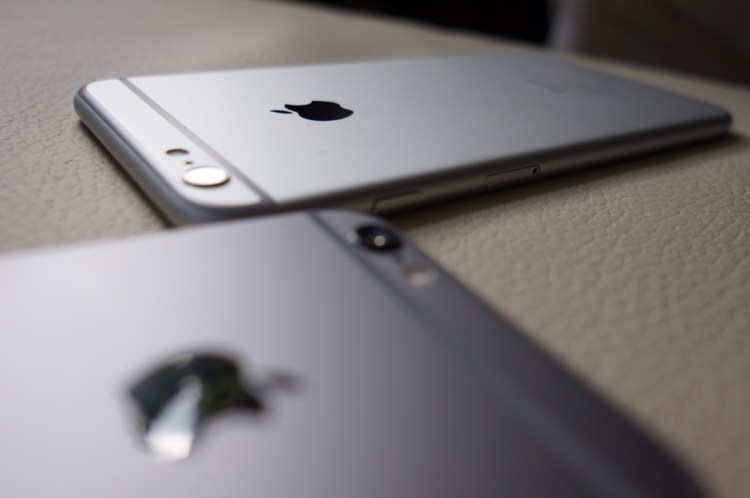Apple is expected to announce its next iPhones at a press event in San Francisco September 9th. Rumors of what the new phones will look like and act like have been flying for months, and VentureBeat’s own sources have given us some reliable insights on the devices.
The new phones — likely called the iPhone 6S and 6S Plus — will be an upgrade from the existing iPhone 6 and 6 Plus phones. Apple’s challenge was to build into these devices an attractive-enough feature set to tempt current iPhone 6 owners, and owners of earlier iPhones, to upgrade. And here are the features we expect to see that might tempt them to do so.
Force Touch
As we reported in early June, the new iPhone 6S will get a front screen with Force Touch and haptic feedback.
Here’s how it works. When you press harder on the screen, sensors in the screen detect the increased pressure by measuring the increased surface area occupied by the finger. The device then responds with haptic feedback — a tap — that gives you the illusion you’ve pressed down on a physical button.
The point of Force Touch is to add a new type of navigation tool to the phone’s user interface. For instance, by pressing down on a location on a map you might automatically trigger driving directions to the location without having to press the “route” button. A Force Touch might also bring up a whole menu of actions related to a specific piece of content, such as a song in the Music app.
Faster processor
The iPhone 6S and 6S Plus are expected to run on Apple’s new A9 processor, which is said to be significantly faster than the A8 chip in the iPhone 6. This might be most readily apparent in game play and video playback. The new phone will also have 2GB of RAM, which should give the phone still more horsepower.
Better front and rear cameras
The iPhone 6 has an 8-megapixel rear camera, and the limitations of that camera can be clearly seen in the washed-out details of images. The new phones, however, will very likely get a larger 12-megapixel rear-facing camera, which will create brighter and clearer stills and video.
The iPhone 6 and 6 Plus have 1.2 megapixel front camera sensors and f/2.2 aperture, which Apple said lets in 81 percent more light than earlier iPhones. The new 6S phones will have larger sensor for the front-facing camera, but the exact size remains unclear. The improvement should make for brighter and sharper selfies and FaceTime video. There is a very good chance that Apple will put some sort of flash on the front of the phones, too.
4K video
The 12-megapixel rear camera sensor on the iPhone 6S will have the capability to shoot video in full 4K high-definition resolution. The existing iPhone 6’s 8-megapixel camera shoots 1080p video.
While 4K does offer a better, sharper look, for many consumers the new feature won’t immediately make a difference. Relatively few have purchased the new 4K TVs or monitors needed to watch the higher-quality video.
Brighter display
The pictures and video that users shoot with the 6S’s improved camera will look better when viewed on the phone itself. VentureBeat sources said last spring that Apple was working with a far brighter OLED screen for its next phone. We expect this to ship with the new 6S.
Better cellular radio
It’s common for new iPhones to get a cellular radio upgrade. The iPhone 6S likely will too, in the form of a new Qualcomm MDM9635M chip that is theoretically about twice as fast as the cellular radio in the existing iPhone 6.
Harder aluminum
Yep, Apple was paying attention to the “Bendgate” controversy, spurred by a video showing a dude bending an iPhone 6 with his bare hands. Apple has strengthened the metal in the inner wall of the iPhone 6S’s back plate around the volume buttons — the place where the iPhone 6 was shown to bend. The screws that hold everything together are also in different places inside the phone.
More colors
And finally, we believe the rumors that the new 6S will come in two new colors — Rose Gold and a darker shade of Space Gray.
The new iPhones are not expected to sell quite as well as the iPhone 6, the first Apple phone in years to offer a larger screen. But then the 6 is a hard act to follow. After the launch of the iPhone 6, Apple sold 74.5 million iPhones in the final quarter of 2014, a new record. In the following quarter, which is seasonally slower, Apple sold 61 million iPhones.


